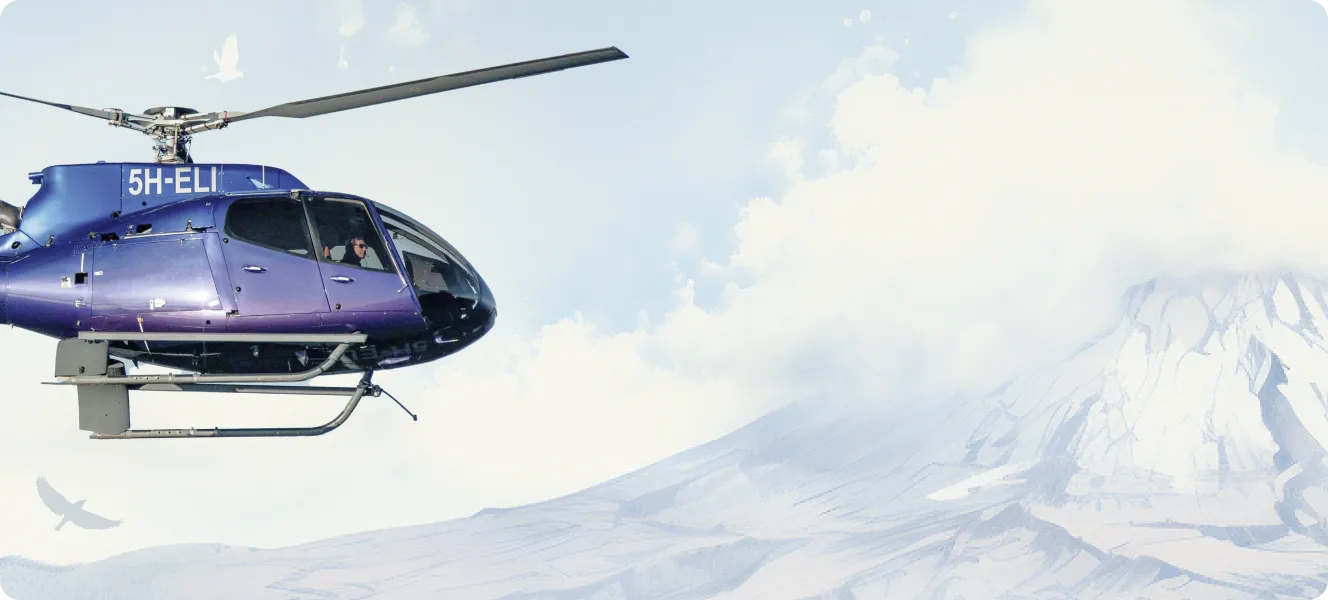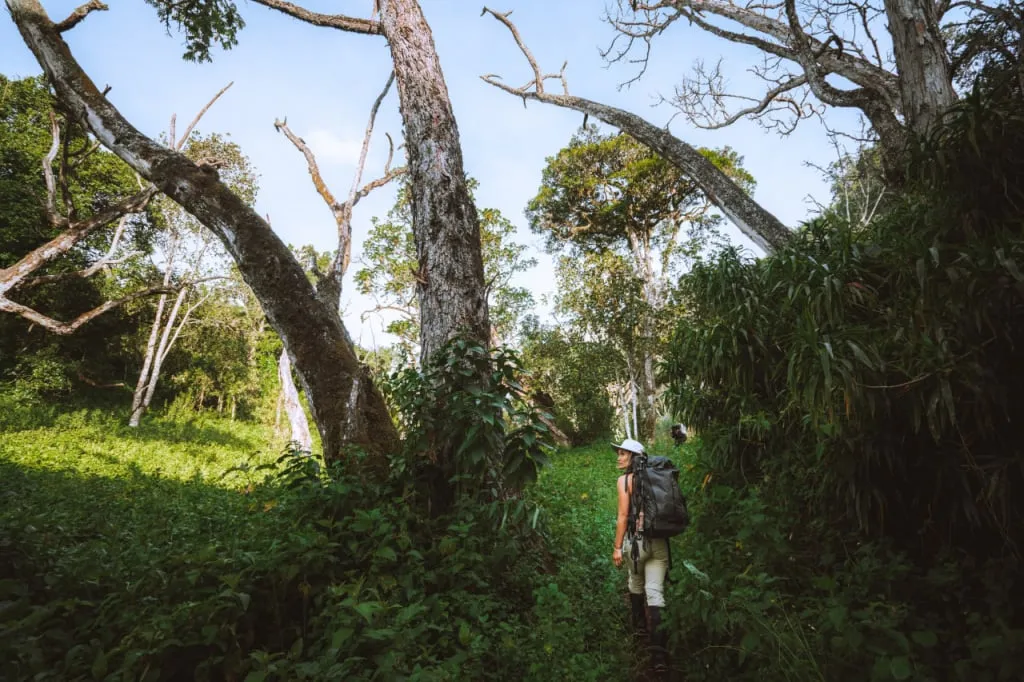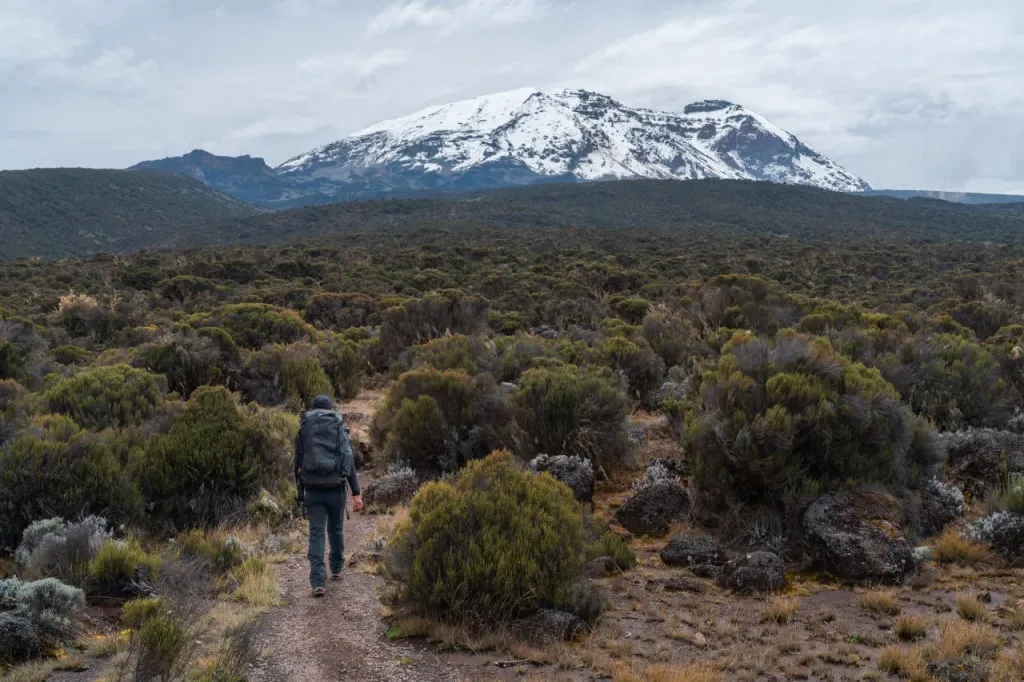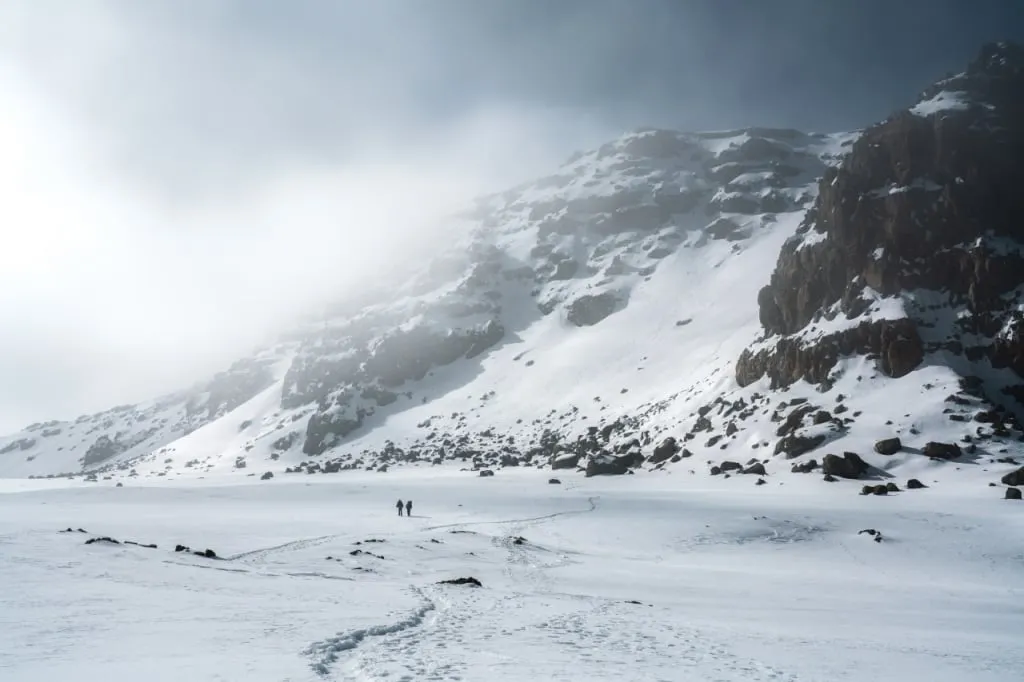If you're planning an overseas mountaineering trip, it's crucial to be aware of potential risks. For example, flight delays, lost luggage, health emergencies, and the need for evacuation. These risks underline the importance of securing reliable travel insurance.
This article delves into the essentials of travel insurance for mountaineering. We'll talk about features like trip cancellation benefits and emergency medical evacuation. Being well-prepared for any unexpected events on your journey is essential. Continue reading to learn everything you need to know about travel insurance.
If you don't have time to read the whole article, here is our quick recommendation. For those in search of dependable mountaineering insurance, we highly recommend Global Rescue. During our decade in the mountaineering industry running Kilimanjaro group climbs and private adventures, we’ve found their service unparalleled. Especially in their response to emergencies. Though it may not be the cheapest, the peace of mind and security it offers are invaluable. Global Rescue is the industry leader trusted by over one million members worldwide. Ready to embark on your next trekking adventure? Secure your Global Rescue membership through the link below.

Additionally, Global Rescue's partner, IMG, offers a great Travel Insurance that provides Trip Cancellation/Lost Luggage/Medical Expense Benefit. It works on a trip-by-trip basis and protects you from non-refundable trip costs. You can purchase your IMG's Signature Travel Insurance here.
Who needs mountaineering hiking insurance?
Trips to high-altitude mountain peaks require comprehensive and specialized mountaineering insurance. The famous 7 Summits are good examples of such destinations:
- Mount Everest - Asia
- Aconcagua - South America
- Denali - North America
- Mount Kilimanjaro - Africa
- Mount Elbrus - Europe
- Puncak Jaya - Australia and Oceania
- Mount Vinson - Antarctica*
*Global Rescue membership will cover you on all those destinations, excluding Antarctica.
The best insurance for Mount Kilimanjaro climbing
Altezza is the largest operator on Kilimanjaro with hundreds of successful trips. We have plenty of experience with many mountain insurance companies. Global Rescue is simply the best in terms of their policy and service.That is why we have chosen to partner with them, and wholeheartedly recommend their insurance memberships for all signing up for our Kilimanjaro climbing trips.
Common risks to consider on climbing trips
Travel insurance provides essential protection against various risks associated with mountaineering trips. It covers illnesses, injuries necessitating emergency medical evacuation, much more. In addition, other risks can be included in the package. These include unexpected trip interruptions, baggage loss, cancellations by tour operators, natural disasters, and death. Such coverage ensures you're prepared for a wide range of potential challenges during your adventure.
Helicopter evacuation and when can you use it
Helicopter rescue is important in rare cases of severe injury or other life-threatening conditions. This is true for Kilimanjaro and other high-altitude peaks.
When is helicopter evacuation necessary? Helicopter evacuation during mountain treks is reserved for life-threatening conditions. For instance, severe mountain sickness, fractures, heart attacks, asthma attacks, and similar emergencies. Helicopter rescue can't be provided in case of relatively mild issues like fatigue. In such cases, evacuation is typically carried out by the local team of your ground operator. This often involves descending on foot or on stretchers. For example, don't expect a helicopter evacuation for knee pain. The ground team will assist you with other evacuation methods. Helicopter rescues are strictly for critical cases when fast medical help is necessary and other forms of descent are not viable.
What can travel insurance protect you against?
Considering these risks, having robust travel insurance coverage becomes essential. Good mountaineering insurance acts as a safety net for all kinds of emergencies.
Medical expenses and repatriation benefits
A major advantage of travel insurance is its coverage for medical expenses. This includes emergency treatments and/or evacuation to a hospital. In more critical health emergencies, repatriation coverage is a useful benefit. It ensures that you are financially protected for a safe return home, complete with the required medical support.
Trip interruption
Additionally, a comprehensive travel insurance policy can be helpful in cases of trip interruption. Imagine you're halfway through a long-awaited African tour. Suddenly, an emergency back home requires your immediate return. Without travel insurance, you'd have to rebook flights and accommodations, often paying hefty fees. Insurance can effectively protect you against this.
Baggage loss
Luggage loss can significantly disrupt travel plans. Imagine arriving at your destination only to find your climbing gear missing. A situation that's more than just inconvenient. In these scenarios, travel insurance proves to be invaluable. It will compensate you for lost items. Moreover, it can cover the cost of renting necessary equipment from local operators.
Altezza Travel also offers a unique solution for such predicaments. If you lose your luggage en route, we will lend you all the required gear at no additional cost.
Trip cancellation
Travel insurance cover often includes a valuable feature: trip cancellation coverage. This becomes crucial when a tour operator cancels a trip and won't refund your payment. In these situations, the travel insurance coverage intervenes to reimburse you for the trip cost.
Please note: at Altezza Travel, we never cancel trips from our end. Once you receive your booking confirmation, your spot in the expedition is secured, and you don't need to worry about potential cancellations.
Many plans offer the flexibility to cancel your trip for any reason. This is particularly beneficial in some cases. Tour operators often have strict cancellation policies and are reluctant to issue refunds. Travel insurance with trip cancellation coverage provides a safety net for such scenarios.
Is regular travel insurance enough for a mountaineering trip?
It's crucial to understand that an ordinary travel insurance package won’t work for a mountaineering trip. Mountain climbing is typically among the exclusions of standard insurance coverage. This is mainly due to the high-risk nature of such trips. Other expeditions or extreme sports also generally require specialized insurance packages.
Considering challenging mountains like Mount Kilimanjaro, Aconcagua, or any of the Himalayan peaks? Getting appropriate mountaineering insurance coverage is essential. Such coverage is designed to address the unique risks of ahigh-altitude mountaineering trek.
When purchasing insurance for mountain climbing or hiking, it’s crucial to note the maximum altitude covered by the policy. For instance, if you sustain an injury at 15,000 feet, but your policy covers only up to 14,000 feet, your claim could be rejected. This is particularly important for treks like Kilimanjaro. Here insurance that covers trekking at altitudes below 6,000 meters (20,000 feet) is essential, as all Kilimanjaro trekking routes will take you above this altitude. Always double-check that the altitude coverage of your travel insurance matches or exceeds the elevation of your mountaineering destination.
When choosing your insurance for Kilimanjaro, ensure it covers mountaineering at altitudes below 6000 meters. For other peaks, it should exceed their maximum elevation. In addition, the insurance package must include emergency medical services post-climb, and helicopter evacuation, often the only viable option in remote or high-altitude expeditions.
Standard health insurance doesn't cover mountain climbing
Typically, standard U.S. health insurance plans like Medicaid, Medicare, Blue Cross Blue Shield, and UnitedHealthcare don't cover international travel. Even when these policies apply overseas, they usually exclude high-risk activities such as mountaineering. Therefore, if you're planning a mountain trek abroad, it's crucial to obtain travel insurance specifically designed for adventure activities.
How do you purchase mountain climbing insurance?
Purchasing insurance packages today is largely a simple, online process. The key information needed includes your passport details, travel dates, and destination specifics. If you're uncertain about the suitability of a plan, consult with your tour operator for advice. At Altezza Travel, we have identified the best insurance options for Kilimanjaro treks and routinely recommend these to our clients.
How much does a good insurance cost?
Travel insurance costs depend on various factors such as the traveler's skill level, age, residency, and destination. At this time, Global Rescue is our top insurance recommendation. For endeavors like a Kilimanjaro climb, the cost of Global Rescue coverage begins at around $530. It is not the cheapest option available on the market, and there are cheaper alternatives. However, we've experienced varying degrees of reliability when it comes to claims and compensations across different companies. As it's impossible for us to predict the situation at the time of your arrival, the only recommendation we can make is Global Rescue that have consistently proven to be trustworthy and reliable. It's important to remember that prices may be higher for older mountaineers due to the increased risk and more comprehensive coverage.
Recommended insurance for a mountaineering trek
For your next mountain expedition, we at Altezza Travel recommend Global Rescue. Distinct from typical insurance providers, Global Rescue functions primarily as an emergency response service. In addition, IMG's Signature Travel Insurance offers extensive assistance for various travel risk factors and unforeseen events. This includes financial coverage and facilitating communication with local operators.
Unique to Global Rescue is their coverage of helicopter evacuations on Mount Kilimanjaro. Elite Exped, renowned for its Himalayan climbs including Everest, also recommends Global Rescue to their clients for robust support during mountain expeditions worldwide.
Click on the link below to get a price estimate for your Global Rescue membership.
Opting for Global Rescue offers more than just standard medical evacuation services. Their coverage extends to situations like natural disasters, civil unrest, and more. This level of support provides an added layer of security and peace of mind. A dedicated team is always on standby to assist you 24/7/365.
IGM Signature Travel Insurance can be purchased in addition to Global Recue's classic membership. It will cover a range of unexpected costs, including:
- TRIP INTERRUPTION OR TRIP CANCELLATION
- LOST OR DAMAGED LUGGAGE
- TRAVEL MEDICAL EXPENSES
- MISSED CONNECTIONS OR CHANGE FEES
- CANCEL FOR ANY REASON (CFAR)
What to do if you need insurance support on the trek?
Your first step should be to contact your insurance provider for guidance and support. However, reaching out during a trek can be challenging due to factors like limited mobile coverage, acute mountain sickness, or adverse weather conditions. In such situations, your mountain guides will be there to help.
Your Kilimanjaro guides will communicate the situation to their base office, which then will contact your insurance provider. This chain of communication ensures you receive assistance even if you're unable to contact them directly. At Altezza Travel, we know how crucial this step is for tough hikes like Kilimanjaro. We collect insurance details from our clients before the hike. This lets us quickly reach your insurance team in emergencies, ensuring fast help and action.
Is insurance included in the standard Kilimanjaro climbing package?
Your climbing package covers certain types of evacuation: by walking / stretchers / rescue car. These are provided by our crew and the rescue service of Kilimanjaro National Park, and your climbing package includes the associated rescue fee.
Additional evacuation-related expenses, such as medical treatment and tests, accommodation and transportation, should be fully covered by your insurance in case of helicopter evacuation. If evacuation is conducted by land (walking / stretchers / rescue car), ONE night in Altezza's properties Aishi Machame Hotel or Brubru Lodge will be provided complimentary. If Altezza's properties are not available, extra accommodations will need to be booked at the property's rate.
How Altezza cooperates with insurance companies
At Altezza Travel, we work closely with medical insurance providers to ensure our clients receive quick assistance in emergencies on the mountain. When our guides initiate an emergency evacuation, we promptly inform the client's insurance company.
Insurance companies typically operate on a reimbursement basis. This means travelers initially cover medical and evacuation costs and later claim these expenses from their insurance provider for a refund. Immediate helicopter evacuations on Kilimanjaro, without upfront payment, are uncommon. They generally require a guarantee letter from the insurance company, which can take over 24 hours to obtain. In emergencies, this delay makes reimbursement a more practical approach. As of 2023, the cost of a helicopter evacuation on Kilimanjaro is around $5,000, inclusive of all required documentation to back up the insurance claim. This sum is initially paid by the traveler but refundable through their insurance post-trek.
However, Global Rescue has a unique advantage: in an emergency, they will cover all your transport arrangements costs (medical up to $500,000, security up to $100,000), without the need to pay upfront.
Why Altezza recommends Global Rescue
We at Altezza Travel have guided thousands of clients to the top of Mt Kilimanjaro and are intimately familiar with the risk of high-altitude trekking. Such experience allowed us to gain a solid understanding of the workings of various insurance companies. And it is no accident that we chose to partner up with the best in the industry — Global Rescue. Let's recap their key membership services:
- WORLDWIDE FIELD RESCUE. Evacuation from the site of illness or injury to the closest, most suitable medical facility.
- MEDICAL EVACUATION AND ADVISORY. Transport or repatriation to the member's preferred hospital at home for those in need of hospitalization.
- 24/7/365 TRAVELER ASSISTANCE. Immediate assistance with local healthcare systems, visa and passport challenges, translation, and more.
- DESTINATION REPORTS AND EVENT ALERTS. Updated travel advisories and comprehensive reports for 215 countries and principalities.
Purchase a Global Rescue membership and IMG's Signature Travel Insurance for your next trekking or climbing adventure to ensure safety and peace of mind.
Disclaimer: This article provides a general overview of benefits and services for informational purposes and should not be considered comprehensive. It doesn't encompass all possible scenarios, coverages, or exclusions of any insurance plan. Note that insurance plan benefits and services are subject to change. The content here is not a substitute for your actual policy/certificate of insurance. In case of discrepancies between this article and your policy/certificate wording, the terms of your policy/certificate will take precedence. If you choose the Global Rescue insurance plan, please refer to their website and plan documents for detailed information.
All content on Altezza Travel is created with expert insights and thorough research, in line with our Editorial Policy.
Want to know more about Tanzania adventures?
Get in touch with our team! We've explored all the top destinations across Tanzania. Our Kilimanjaro-based adventure consultants are ready to share tips and help you plan your unforgettable journey.





















